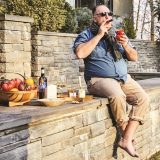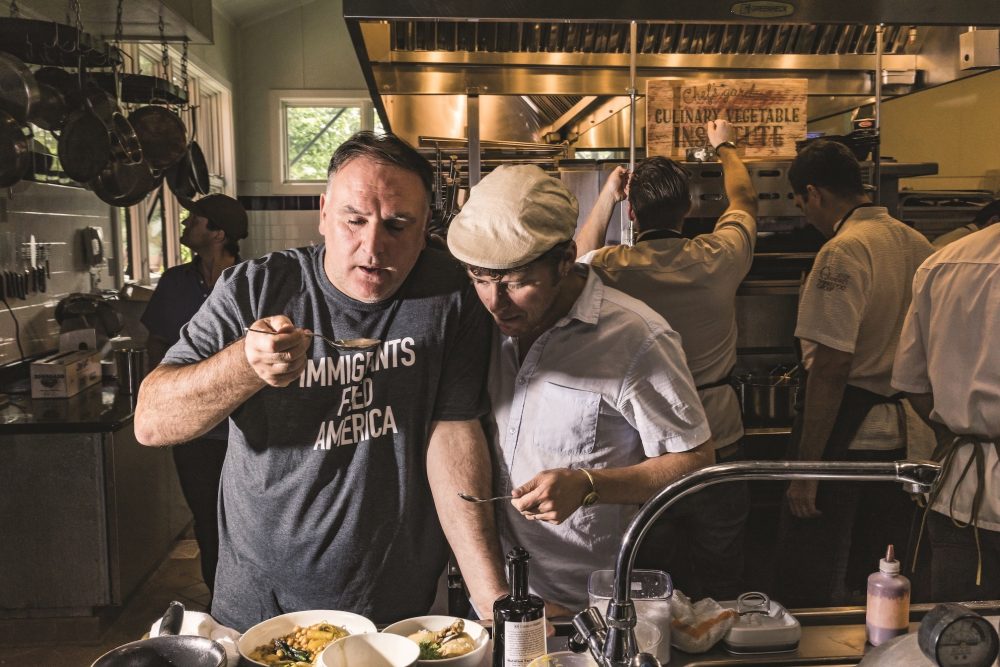José Andrés needs no introduction. Overseeing over 30 restaurants, writing cookbooks (his most recent one, “Vegetables, Unleashed,” came out in May) and serving as a leader in the culinary might sound like enough, but the chef and humanitarian also provides disaster relief to millions by providing meals to those in need through his nonprofit, World Central Kitchen.
On this week’s episode of Milk Street Radio, the man who somehow manages to be in 10 places at once explains how he does it all (and still makes time to swim with sharks). Get a taste of the interview from the excerpts below, and to hear more, including the secret to his spontaneity and his dream day off—if he ever took one—listen to his full conversation with Christopher Kimball here.
On the new American dream
I’m about to be 50 this year, and everything I am is because somebody else before me, in so many ways, made me that way. The new American dream is not only taking care of yourself and your own, but also working hard to provide for others you don’t know. I understand that we cannot all be everywhere, but it gives me relief knowing that around the world, there are always amazing people in our communities that take care of each other. That’s the world I want to live in.
On failure
Winston Churchill said that success is going from failure to failure without losing enthusiasm. That means sometimes you’re going to try and you’re going to fail, or you’re going to fall way short of your dreams. But even if you fall short, you should be proud of yourself because you tried. Hope and enthusiasm are what makes us who we are and what keeps us going.
On his first few days providing disaster relief in Puerto Rico
When I arrived, I quickly saw that the problem was even bigger than what we saw on TV. We knew people were hungry and in need of food. The shelves of the supermarkets were totally empty. So, we gathered a group of friends, and we began cooking. The first day, we did a thousand meals. We went to the kitchen of my friend, Jose Enrique in the heart of San Juan because we had to be in a place where anyone that wanted to help us could have easy access just by walking. We used gasoline from cars and found food that was readily available on the island. Once we opened a line of credit, and they began giving us the food, the only thing I told them was to make sure no matter what happens, keep the food coming.
We went from 20 friends to 25,000 volunteers—from one kitchen to 25 kitchens—while many people were still meeting and talking about how to do it. Sometimes in these situations, a plan is an enemy. For us, no plan. Just cooking and delivering the food to the people in need was what we did and why we made a difference.
On immigrants
When you have immigrants, they always enrich every city and every nation they come to because they bring with them who they are, and in the process, we all become better. We will see that in the end, we are much more equal than we are different.
On his greatest fear
I’m afraid of humanity giving up on itself—of not giving a damn about those that are not like us. At the same time, fear is only a way to stay alert. Being hopeful is a way to take action.
This interview has been edited for clarity.
Join the conversation on Facebook, Twitter, Instagram and Pinterest.
Stay up to date on free recipes, new radio episodes, classes, events and more with our newsletter. Sign up here.
The chef and humanitarian gets personal on Milk Street Radio.



